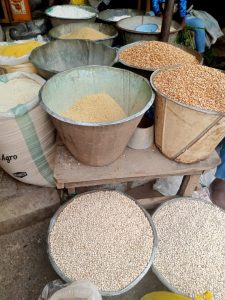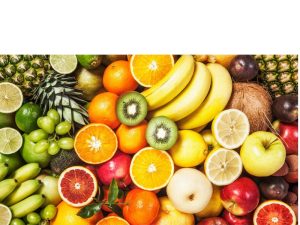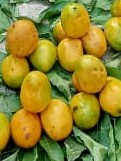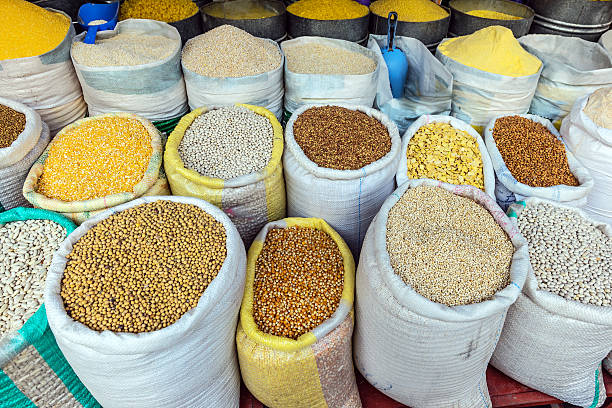By Juliet Jacob Ochenje
It is not for nothing that the use of chemicals in the preservation of foods and fruits in the country is discussed in loud whispers – the unwholesome practice is prevalent and big money drives it.
If you love eating beans or its allied food delicacies like moi moi (bean pudding) or bean cake, popularly called ‘akara’ across Nigeria, then you need to hear what this beans seller at a popular Abuja market, Mrs Cecilia Amos, had to say when our correspondent spoke with her on what method of preservation she uses for the produce.

“After buying a bag of beans, I also buy a new empty bag for storing of the beans. Then, I buy a chemical that is called Bomb, which is also used in killing insects in the house,” she narrated.
What the seller calls bomb is a tablet variant of popular pesticide called Sniper.
Amos continued, “I’ll buy like three of the bomb tablets then I’ll tie each of the tablet in a leather bag (polythene), that’s into three places, then put one of each tied tablet inside the empty bag of beans I bought.
“It is usually the first thing I put in the bag because one of the tablet must be under the beans, then I transfer the beans into the new bag, when it gets halfway, I add another tablet, continue filling the bag, then add the last tablet at the top of it before sealing it.’’
The dangers associated with Bomb’s contact with food calls for great alarm. Just like Sniper, Nigerian farmers and foodstuff dealers use the product for pest control. It is also widely used as an insecticide to control household pests but with strict care not to bring it to contact with consumables.
According to a health expert, Pharm. Emmanuel Onyekachi, the effects of consumption of foods exposed to chemicals such as Bomb and Sniper could lead to neurological disorders, respiratory diseases and cancer.

He said, ”The use of agrochemicals such as sniper in preserving foods like beans can cause neurological defects in humans when such foods are being consumed, they can also cause skin irritation, nausea, gastrointestinal disorders and death in some cases. They can also induce certain respiratory disorders when such beans is being consumed and can cause carcinogenic effects.’’
Not only does this unwholesome practice affect the health of Nigerians, it also causes economic loss to the country. The use of the chemical in the preservation of foods and fruits produced for export has been blamed for the consistent rejection of many agricultural produce by global commodities markets, especially the European Union, EU.
But despite the magnitude of this problem, not many consumers are aware of the practice. According to Stanley Bamidele, a middle aged man who said he loves eating beans, he never had an idea of the preservation process his beloved beans goes through before ending on his table.
”Beans happen to be my favourite meal but with my new knowledge, I think I am now worried about my health right now and I definitely need to go for medical check up because those insecticides are very dangerous to one’s health,” he lamented.
Miss Ella is another consumer of beans. But in her own case, she’s aware of the use of the chemicals in the preservation, which is why she makes sure that whenever she wants to make a meal with beans, she soaks them in water overnight then pours out the water, parboils the beans, drains out the water again, then proceeds to cook again till it is ready for eating.
She said the ‘’precautionary process’’ at least helps to do away with ‘’any side effect of the insecticide or chemicals.”
Fruits not left out…

To get those fruits – banana, oranges, pears, etc, you see on the street sides and markets in Abuja looking yellow and inviting, some sharp practices happen between the growers and the sellers. Unknown to many consumers, artificial ripening is done to achieve faster and appealing looks for many of them.
Mrs Ann Nwachukwu is a fruit seller in Abuja. When our correspondent approached her to share her ‘secrets’ on how to select ripe and inviting fruits that will attract people to buy, she said they (fruit sellers) usually use calcium carbide to make ripen them on time and have a uniformed attractive colour that will capture the attention of people.
Using banana as an example, she explained: ”After getting the unripe banana, we make sure they’re strong and big in sizes because the bigger the size, the lesser time it would take to ripen.
“Then we get a chemical called calcium carbide, popularly know as carbide, put a little quantity of it into a bucket, put the banana into the same bucket and cover it with a leather material for 12hrs. After the 12 hours, we remove the banana from the bucket then wash it softly to prevent it from becoming dark due to the chemical.”

The next step, according to her, “is to put the washed banana into another plastic bucket then cover it with a wrapper or any light cotton fabric for three days and in some cases, up to four days, depending on the quantity of the chemical used. After then, the banana is ready for selling.”
Speaking on the adverse effects of eating such chemically altered fruits, Pharm. Onyekachi warned that the carbide used in ripening fruits brings causes the release of ethylene in them, which leads to the ripening effect seen on the external part of the fruits.
‘’It also contains toxic chemicals such as arsenic and phosphorus, which causes harmful effects to human health such as damage to the mucosa tissues and disruption to the normal functioning of the gastrointestinal tract. It can also result to skin and throat ulcers, abnormal abdominal and chest pain,’’ he stated.
Mr Abubakar Sadiq is the Director, Food Hygiene Initiative of Nigeria, Nasarawa State Command. Speaking with our correspondent, he condemned the practice, blaming it on ignorance of users who are oblivious of the effects on human health.
Sadiq explained that such application could cause fruits or foodstuff to lose the natural supplements they were meant to provide to the human body. He noted that calcium carbide for chemical treatment of foods is extremely harmful because it contains traces of arsenic and phosphorous substances.
A food scientist by training, he explained that once these chemicals dissolve, they produce acetylene gas which could be absorbed into the body of foodstuff, thereby contaminating it for human consumption.
‘’Calcium carbide is a material most commonly used for welding purposes. When used for treatment of food, it is extremely hazardous because it contains traces of heavy metal arsenic and phosphorous substances. The forceful ripening of fruits means they may contain various harmful properties,” he added.
Both health experts called on regulatory authorities such as the National Agency For Food and Drug Administration and Control (NAFDAC) to sensitise the traders, farmers and consumers on the dangers of using chemicals in food preservation and ripening. They added that where culprits are caught still indulging in the practice, they should be sanctioned accordingly.
(Feature image copyright: Pavliha)



